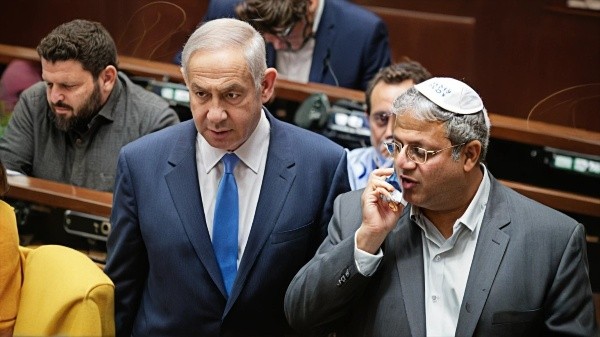Iran’s Plan to Strike Back Against the U.S.
Iran’s Military Preparations Following U.S. Attacks
Loading...

Palestinian resistance movements have strongly condemned the Israeli parliament’s final approval of a law allowing the deportation of Palestinian resistance fighters' family members to Gaza and elsewhere.
Introduction
Palestinian resistance movements have expressed strong condemnation following the Israeli parliament's recent approval of a law that permits the deportation of family members of Palestinian resistance fighters. This controversial legislation has ignited outrage among various Palestinian factions, who view it as a blatant violation of human rights and a tool of collective punishment.
Israeli Parliament Approves Controversial Legislation
On Thursday, Israel's parliament, known as the Knesset, passed the law with a vote of 61 in favor and 41 against. The legislation, primarily advocated by members of Prime Minister Benjamin Netanyahu’s Likud party and far-right allies, allows the interior minister to deport family members of individuals who carry out attacks against Israeli forces and settlers. The law stipulates that family members can be expelled if they are deemed to have had prior knowledge of the attack and failed to prevent it, as well as if they expressed support for such actions.
Hamas Denounces Law as Racist and Hostile
In immediate response to the law's approval, Hamas issued a statement labeling it as an affirmation of Israel's "hostile and racist approach" toward Palestinians. The group criticized the legislation for violating fundamental human rights and international humanitarian law, calling it an act of collective punishment. Hamas urged the international community and human rights organizations to condemn the law and take measures to force Israel to retract what they described as unjust regulations that undermine human dignity.
Islamic Jihad's Strong Rebuttal
The Islamic Jihad Movement also condemned the new legislation, characterizing it as a dangerous infringement on international norms that prohibit collective punishment. They accused the Israeli government of pursuing an agenda of ethnic cleansing against the Palestinian population, asserting that the Knesset is acting as a tool of genocide in its ongoing conflict with Palestinians. The movement specifically criticized the interior minister, who has a history of controversial statements and actions, for being granted the authority to expel entire families under this new law.
Criticism from the Mujahideen Movement
Similarly, the Mujahideen Movement denounced the law as another affront to international standards and conventions. They highlighted that the legislation allows for the deportation of family members for up to twenty years and the imprisonment of minors, framing these actions as part of a broader campaign of genocide and ethnic cleansing against Palestinians. The Mujahideen Movement emphasized that these measures reflect a systematic approach to legitimizing violence against the Palestinian population.
Call for International Accountability
The resistance groups collectively called upon the international community to take responsibility for its silence regarding Israel’s actions. They argued that the lack of global condemnation only enables further aggression against Palestinians. The Mujahideen Movement, along with others, indicated that the international community’s failure to respond adequately to these developments raises questions about its commitment to human rights and humanitarian law.
Conclusion
The approval of the deportation law by the Israeli Knesset has provoked a fierce backlash from Palestinian resistance movements, who view it as a violation of human rights and a continuation of systemic oppression. As these groups call for international intervention, the implications of this legislation on the already tense Israeli-Palestinian relations remain profound. The situation highlights the urgent need for dialogue and intervention from global actors to uphold the principles of justice and human rights in the region.
Editor
Iran’s Military Preparations Following U.S. Attacks
Troops remain in five strategic locations, raising fears of renewed tensions and long-term occupation.
Opposition forces have taken control of the capital after a significant offensive. Here is how it unravelled.
